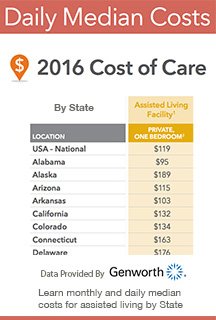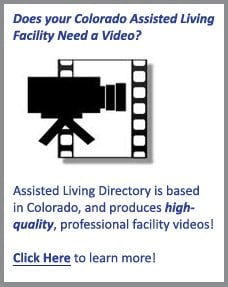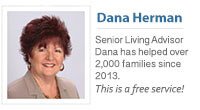Covering The Cost of Assisted Living in Colorado:
Summary: I have researched how to pay for assisted living with Medicaid, waiver programs in Colorado (Home and Community-Based Services (HCBS) Waivers), what the eligibility requirements are, and what to do if you are denied coverage.
Author: Trish Hughes Kreis exclusively for Assisted Living Directory

Colorado – Going on a Treasure Hunt (to find information on Colorado’s Medicaid & Waiver Programs)! by Trish Hughes Kreis
A fellow caregiver reached out to me for help: I live in Colorado and my wish is to find a place for my brother and I to live and I take care of him.
Substitute for any state and for any relative or friend and you have a dilemma faced by millions of caregivers in the United The Colorado Waiver Program for Assisted Living – explainedStates. The living arrangement decisions in caregiving range from whether to bring the loved one into the caregiver’s home, finding a place to live together or a care facility for the loved one.
This dilemma can be summed up in one short question:
How can I best help the person I am caring for?
Whether help comes in the form of moving the person receiving care into the caregiver’s home or in finding the best assisted living facility, the underlying wish of all caregivers is to give their care recipient the best help possible.
According to the US Census bureau, 11.3% of Colorado residents are 65 years of age or more. This, although lower than the US average of 13.3%, is significant, and this percentage has grown in the past several years.
There are currently 500+ assisted living facilities in Colorado, and this number will grow as well in the years to come, since Colorado’s abundant sunshine, as well it’s reputation for being one of our ‘healthiest states’ – not to mention the state’s excellent choices for medical care and senior housing – are attracting seniors from all over the US.
The Median Monthly Cost for Assisted Living in Ohio (Private, One-Bedroom) is: $3,600
Caregivers do appreciate choices but the decision to place a loved one in a facility is one of the most gut-wrenching decisions to make. If it becomes apparent it is time for an assisted living setting, then sorting out how the facility will be paid for (using private pay, private insurance, Medicare or Medicaid) can help narrow the choices during this difficult time.
Understanding the Medicaid programs can be an arduous task, made even more complicated because of the differences from one state to another. Nationwide, over 50% of residents use some form of Medicaid to pay for nursing home or assisted living care so it is worth knowing what is available.
Programs exist to be used but knowing what programs are available and then sorting through the requirements to qualify for the programs can feel like a treasure hunt with a lot of obstacles.
Each state has its own to negotiate to find the information needed but it will be well worth navigating to find assistance. Many states have their own specific waiver programs to help defray the costs of long-term care. Some states do not have separate waiver programs but have other programs to help cover the costs of skilled or assisted living facilities through their Medicaid program.
Let’s start our hunt!
Start Here. The treasure hunt in Colorado for Long Term Care Medicaid services begins with the County Departments of Social/Human Services. (https://www.colorado.gov/pacific/cdphe/assisted-living-residence-consumer-resources) Apply for Medicaid through the applicable county department of social services. You can also use the Colorado Peak System (https://peak.state.co.us/selfservice/) to check to see if you might be eligible for Medicaid benefits before applying.
Once Medicaid eligibility has been determined and if you meet the program criteria, the Case Management Agencies will set up services for those in need of long-term care.
Please be aware that you must already have applied for Social Security benefits before applying for Medicaid. Contact the local Social Security office either in person or visit their website at www.ssa.gov to apply for Social Security benefits. The eligible adult may also qualify for Supplemental Security Income (SSI) or Social Security Disability Insurance (SSDI) but it is necessary to start with the Social Security application.
Helpful Hint: Regardless which state you live in, a Durable Power of Attorney is not recognized by Social Security which can be a frustrating realization for a caregiver. However, if assistance is needed with financial matters at Social Security, it is possible to appoint a Representative Payee (http://www.ssa.gov/payee/faqrep.htm). Contact the local Social Security office in order to apply to become appointed for your care recipient.
In addition, if the Medicaid applicant needs assistance with financial matters, the local Medicaid system will have their own form to complete in order to appoint a representative (the Social Security Representative Payee will not work with the county Medicaid offices).
So far, and depending on eligibility, this treasure hunt has provided Social Security benefits as well as Medicaid benefits. Take a breather (you deserve it!) and then forge ahead for more programs.
Waiver Programs.
Home and Community-Based Services (HCBS) Waivers available in Colorado may provide additional benefits depending upon eligibility. Visit the State Medicaid Agency, the Colorado Department of Health Care Policy and Financing, (http://www.colorado.gov/cs/Satellite?c=Page&cid=1218102955170&pagename=HCPF%2FHCPFLayout) for more information about the various waiver programs which range from Adult Day Services to Alternative Care Facilities.
HCBS Waiver Eligibility.
The basic income requirements for HCBS Waiver eligibility are outlined as must be less than $2,094.00 per month countable resources less than $2,000 for a single person or $3,000 for a couple. (http://www.colorado.gov/cs/Satellite?c=Page&cid=1213781362679&pagename=HCPF%2FHCPFLayout#Adult_Waivers)
What Happens if I am Denied?
Continue the treasure hunt do not be deterred. Talk to the County Department of Social/Human Services to exercise your right to appeal (this will most likely be the same County Department of Social/Human Services where you originally applied). Keep in mind, many of these programs have limited funding and, unfortunately, not everyone who applies and meets eligibility requirements will be accepted into a program.
It’s critical to know that there are always a specific set of rules and timelines for the appeals process which can bring a reversal of the denial. It is important to know the appeal process and to follow the instructions and timeline carefully.
In caregiving, the treasure hunt never ends but with the right resources, the treasure hunt for the best care will be a little easier to navigate.
No Obligation
Assisted Living with Covering The Cost of Assisted Living in Colorado:










